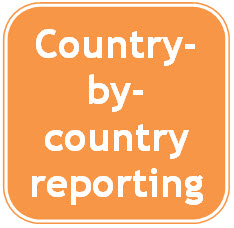
The US passed new law requiring a limited form of country-by-country reporting for the extractive industries in July.
Now the White House has gone a stage further, saying:
THE WHITE HOUSE
Office of the Press Secretary
______________________________________________________________________________
For Immediate Release July 23, 2010
Statement by the Press Secretary on Transparency in the Energy Sector
The Wall Street Reform and Consumer Protection Act, which President Obama signed earlier this week, includes a landmark provision that requires energy and mining companies registered with the U.S. Securities and Exchange Commission to disclose how much they pay to foreign countries and the U.S. government for oil, gas, and minerals.
This provision is an essential new tool in promoting transparency in the oil and mineral sectors. This legislation will immediately shed light on billions in payments between multinational corporations and governments, giving citizens the information they need to monitor companies and to hold governments accountable. It will shine a sustained light on the relationship between corporations and governments in the oil and mineral sectors, and make impossible the kind of back-room dealings that cost taxpayers in lost royalties.
Importantly, this provision sets a new standard for corporate transparency. The challenge for us now is to make this a global standard. The United States is committed to working with other countries to ensure the implementation of similar disclosure requirements in other financial markets and will make this a priority in the year ahead.
Let me be clear, this new US law is not full country-by-country reporting. It is just reporting of payments made by EI companies to the governments that host their activities, but it’s massive progress all the same.
First, it recognises that paying tax is a key component of corporate responsibility.
Second, it recognises that this duty can only be monitored if payment is reported.
Third, it recognises that reporting on any basis but the individual country level makes no sense at all — that’s the level at which information is needed.
Fourth, it recognises that this issue is so important universal disclosure is required and voluntary procedures cannot meet the need for data of this sort.
Fifth, it says this requirement should be universal.
Sixth, by implication it says the cost of reporting is less than the benefits it can deliver — which is, inevitably, true if all the resulting benefits are taken into account.
Seventh, by implication this says that the needs of people other than the investors in these entities (which almost universally opposed these disclosures) should be taken into consideration when making decisions on this issue.
All of which (and more) says that the International Accounting Standards Board, the Institute of Chartered Accountants in England and Wales, the European Financial Reporting Advisory Group to the EU, and so many others with whom I have been in discussion on country-by-country reporting of late are all unambiguously wrong — and are acting profoundly unethically — when they argue that consideration of reporting of this data need only take into account the information requirements of investors in the reporting entities when the costs and benefits of doing so are calculated.
Candidly it shocks me that consideration of accounting standards is delegated to the accountancy profession when it is very obviously wholly unable to act ethically when doing so and when all around realise that is the case.
At least the White House got it right.
Thanks for reading this post.
You can share this post on social media of your choice by clicking these icons:
You can subscribe to this blog's daily email here.
And if you would like to support this blog you can, here:


